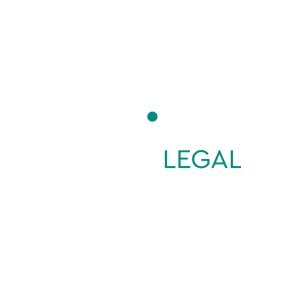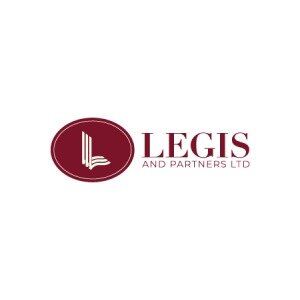Best Sustainable Finance Lawyers in Mauritius
Share your needs with us, get contacted by law firms.
Free. Takes 2 min.
Or refine your search by selecting a city:
List of the best lawyers in Mauritius
About Sustainable Finance Law in Mauritius
Sustainable Finance is a rapidly evolving field in Mauritius, reflecting global trends to synchronize economic development and environmental responsibility. In essence, Sustainable Finance refers to any financial process, investment, or practice that considers environmental, social, and governance (ESG) factors alongside traditional financial metrics. This approach supports the shift towards a green economy, ethical investing, and social good. Mauritius, as a prominent international financial centre, has actively pursued legal reforms and initiatives to integrate sustainability into its financial sector. This includes implementing regulations, incentives, and frameworks to guide both local and international stakeholders involved in sustainable investment activities.
Why You May Need a Lawyer
Engaging in Sustainable Finance in Mauritius might involve legal complexity due to evolving regulations, cross-border transactions, and compliance requirements. Common situations where legal advice is important include:
- Structuring green bonds or other sustainable finance instruments
- Ensuring compliance with ESG reporting and disclosure requirements
- Setting up impact investment funds or vehicles in Mauritius
- Advising on regulatory approvals and licensing mandates
- Dealing with cross-border transactions for sustainability projects
- Managing disputes or investigations linked to greenwashing or misrepresentation
- Navigating incentives, tax exemptions, or government schemes for sustainable finance
- Drafting contracts incorporating sustainability clauses
- Advising on mergers, acquisitions, or joint ventures in sustainable projects
A qualified lawyer can help ensure compliance, protect against risks, and provide strategic guidance tailored to the sustainable finance ecosystem of Mauritius.
Local Laws Overview
Mauritius has established a robust legal framework to promote and regulate sustainable finance. Some of the key aspects include:
- Securities Act and Financial Services Act: These provide a basis for regulating capital markets, including frameworks for green bonds and sustainable investments.
- Financial Services Commission (FSC) Guidelines: The FSC has published guidelines for Green Bonds and ESG investments, setting out requirements for issuers, project selection, transparency, and reporting.
- Bank of Mauritius (BOM) Sustainable Bond Guidelines: BOM has detailed the process for issuing green, social, and sustainability-linked bonds in the domestic market.
- Corporate Governance Code: Updated to include ESG and sustainability responsibilities for company boards and directors.
- Environmental Protection Act: Governs environmental impact assessments and compliance for projects receiving sustainable finance.
- International frameworks: Mauritius aligns its regulations with global initiatives such as the United Nations Principles for Responsible Investment and the Sustainable Development Goals.
- Tax incentives: Preferential tax treatment or other incentives may be available for certain sustainable activities or funds.
Given the range and scope of regulations, staying up to date with recent legal developments is vital for anyone involved in sustainable finance within Mauritius.
Frequently Asked Questions
What is sustainable finance in the Mauritian context?
Sustainable finance in Mauritius refers to financial services and investments that integrate environmental, social, and governance (ESG) criteria into decision-making, supporting projects that are both economically viable and impactful for society and the environment.
Who regulates sustainable finance activities in Mauritius?
The Financial Services Commission (FSC) and the Bank of Mauritius oversee sustainable finance activities, depending on the nature of the instruments or investments. Other agencies like the Ministry of Environment are also involved in enforcement.
What are green bonds and are they available in Mauritius?
Green bonds are fixed-income securities issued to fund environmentally friendly projects. In Mauritius, their issuance is guided by both BOM and FSC regulations, with several local institutions having already launched such bonds.
Are there specific licensing requirements for sustainable finance?
Entities engaged in offering sustainable finance products, managing ESG funds, or acting as advisers must usually be licensed by the FSC or BOM, depending on their activities.
What legal requirements exist for ESG reporting?
Entities must adhere to the FSC's guidelines on ESG disclosure, which mandate transparent reporting on ESG metrics, risk assessments, and sustainability performance, especially for listed entities and licensed providers.
Can foreign investors participate in sustainable finance in Mauritius?
Yes, Mauritius encourages foreign investment in sustainable finance, with a regulatory environment and incentives designed to attract international players, subject to compliance with relevant laws and anti-money laundering standards.
How does Mauritius address greenwashing risks?
Regulations require accurate ESG disclosures, independent reviews, and proper due diligence to mitigate greenwashing. Non-compliance can result in penalties, license suspensions, or legal action.
Are there tax benefits for sustainable finance initiatives?
Mauritius offers various incentives, such as tax exemptions or deductions for funds and companies meeting specific sustainability criteria or investing in qualifying green projects.
What obligations do fund managers have regarding sustainability?
Fund managers must integrate ESG factors, adhere to FSC guidelines, adopt responsible investment policies, and maintain transparent reporting practices.
How can I ensure my sustainable finance project is compliant?
Seek legal advice to conduct project-specific compliance reviews, assess licensing needs, ensure proper ESG reporting, and align all activities with local regulatory requirements.
Additional Resources
To better understand or keep up with sustainable finance in Mauritius, consider these resources:
- Financial Services Commission (FSC) - publishes guidelines and updates on sustainable finance regulations
- Bank of Mauritius - regulator for banks and bond issuances, with dedicated sustainable finance frameworks
- Ministry of Environment, Solid Waste Management and Climate Change - responsible for environmental regulations, project clearances, and impact assessments
- Mauritius Bankers Association - industry updates on green banking and sustainable lending
- Mauritius Chamber of Commerce and Industry - information and networking on sustainable business practices
- Global Reporting Initiative (GRI) and United Nations Environment Programme Finance Initiative (UNEP FI) - international ESG reporting and best practice frameworks used locally
Next Steps
If you are considering entering the field of sustainable finance in Mauritius or need advice on a specific transaction or investment, here is how you can proceed:
- Identify your key objectives and any planned activities related to sustainable finance
- Gather all relevant documents and information about your investment, project, or corporate activities
- Consult with a licensed legal professional specializing in financial services or ESG matters
- Work with your lawyer to review compliance needs, draft or review legal documents, and secure any necessary approvals or licenses
- Stay informed about legal updates, reporting deadlines, and regulatory changes that may impact your activities
Sustainable finance is a dynamic sector in Mauritius, offering promising opportunities but also legal complexities. Early and proactive legal guidance will help protect your interests and ensure your activities are compliant, resilient, and aligned with both local and global sustainability goals.
Lawzana helps you find the best lawyers and law firms in Mauritius through a curated and pre-screened list of qualified legal professionals. Our platform offers rankings and detailed profiles of attorneys and law firms, allowing you to compare based on practice areas, including Sustainable Finance, experience, and client feedback.
Each profile includes a description of the firm's areas of practice, client reviews, team members and partners, year of establishment, spoken languages, office locations, contact information, social media presence, and any published articles or resources. Most firms on our platform speak English and are experienced in both local and international legal matters.
Get a quote from top-rated law firms in Mauritius — quickly, securely, and without unnecessary hassle.
Disclaimer:
The information provided on this page is for general informational purposes only and does not constitute legal advice. While we strive to ensure the accuracy and relevance of the content, legal information may change over time, and interpretations of the law can vary. You should always consult with a qualified legal professional for advice specific to your situation.
We disclaim all liability for actions taken or not taken based on the content of this page. If you believe any information is incorrect or outdated, please contact us, and we will review and update it where appropriate.
Browse sustainable finance law firms by city in Mauritius
Refine your search by selecting a city.

















